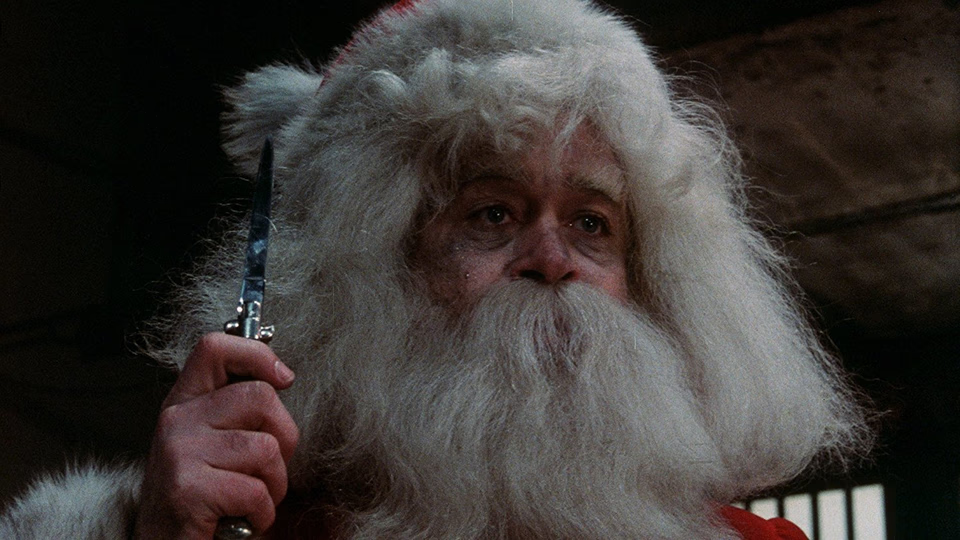Christmas Evil

Christmas Evil isn’t the sleazy Santa slasher you’d expect.
Christmas Eve. A young boy named Harry wanders downstairs and spies his father, dressed as Santa, fondling his half-naked mother.
I know, I said the film wasn’t sleazy. Stay with me.
Fast-forward thirty years and Harry (played by Brandon Maggart) has developed a Santa obsession. His shabby apartment overflows with Christmas knick-knacks and Santa artwork. He spies on the neighborhood children and catalogs their activities in large tomes dedicated to the naughty and nice. He even works in a dingy toy factory.
On Christmas Eve night, Harry dons his handmade Santa costume. At first, he’s overjoyed as he delivers toys to children in a mental hospital. But then his attention shifts to the naughty and his mood darkens. A chance confrontation turns violent and bloody. Harry flees and finds solace in a neighborhood Christmas party where he delights the local children. But soon he’s alone again, and the high of the party gives way to another dangerous low. More violence follows, spiraling out of control and leading to an outrageous finale that I dare not reveal, but which casts the film as a bittersweet fable.
Christmas Evil has grown on me. On first watch, I expected a cheesy bit of exploitation but came away impressed. The New Jersey exteriors and the worn, lived-in interiors give the film a documentary veneer and added authenticity. The later moments where the veneer slips, such as revealing the snowfall as mats, almost play to the narrative’s fractured reality.
Most of all, I appreciated the film’s willingness to tell a different sort of story. It hit me during the third act, which sees Harry fleeing a mob of torch-wielding neighbors: writer/director Lewis Jackson wasn’t making a slasher picture at all—he was making a monster movie.
Consider the similarities to Frankenstein. Both serve as cautionary tales. Frankenstein warned against playing God. Jackson’s film warns against playing Santa. Moral absolutes like naughty and nice don’t work in the adult world.
To that end, Maggart’s performance as a child trapped in a middle-aged body invites deeper introspection. It silenced the audience during my first viewing. No snarky chuckles or giggles—they sat transfixed. Much as in Frankenstein, we come to care for this misunderstood monster. The script helps, ensuring Harry never harms a child. It reserves Harry’s murderous outbursts for the film’s real creeps: the other adults. An important detail that lets the film earn its ending.
The more I think about Christmas Evil, the more I admire it, and I’m happy to report it improves on repeat viewings.